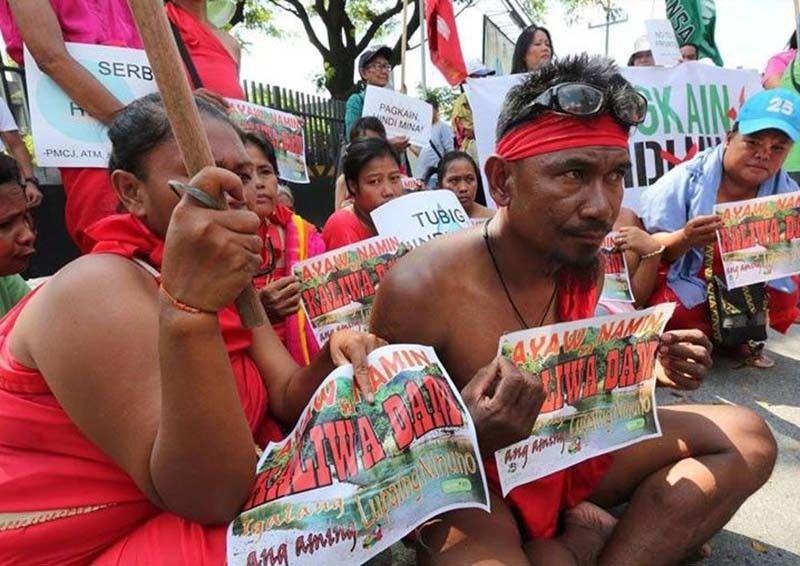Threats against environmental defenders seen to worsen with anti-terror bill

MANILA, Philippines — The anti-terrorism bill could aggravate the attacks experienced by Filipino environmentalists protecting the climate and the country’s forests and seas, environmental groups said.
Forty-six environmental defenders were killed in the country in 2019—a 53-percent increase from 30 deaths recorded in 2018.
In 2019, Vicky Tauli-Corpuz, UN Special Rapporteur for Indigenous Peoples, said that there is a global phenomenon of "land and environmental defenders, a significant number of whom are indigenous peoples, are declared terrorists, thugs or criminals for defending their rights."
She added: "This violence is a human rights crisis but it is also a threat to everyone who depends on a stable climate."
During the coronavirus lockdown, at least 172 environmental defenders experienced abuses such as red-tagging, illegal arrests and the denial of humanitarian release from jails.
More attacks against environmental groups are feared once President Rodrigo Duterte signs the bill into law, groups said.
The controversial measure is now on the president’s desk after Congress sent the enrolled copy of the anti-terrorism bill Tuesday.
“The provisions of the proposed bill alone are telling of how it could exacerbate widespread human rights violations experienced by environmentalists on the ground from both private and state actors,” the Center of Energy, Ecology and Development said Monday.
Lawyers, rights watchdogs, members of the academe and environmentalists sounded alarm over the broad but vague definition of terrorism, prolonged period of detention without warrant and the removal of liabilities against wrongful persecution.
“We cannot simply trust that abuses will be kept in check, especially when penalties against such abuses have either been reduced or completely removed,” CEED said.
“Ultimately, at the root of this mistrust is the track record of the present administration characterized by inaccessibility of justice, a propensity to label individuals and groups as terrorists without credible basis, and a pattern of abuse of power, including unacceptable instances of vilification of dissent, police raids without warrants, and planting of evidence against alleged violators,” it added.
The fear that environmental workers may be mistaken for terrorists or rebels is not unfounded. In November 2010, botanist Leonard Co and his two assistants were killed in Kananga, Leyte. Although the Army claimed they were killed in a shootout, the Commission on Human Rights later found that soldiers had mistaken the bontanists for rebels.
"There was a failure to distinguish civilians from alleged combatants. There was a failure to provide prompt medical attention to the wounded victim... who died as a result," it said then.
Leon Dulce, national coordinator of Kalikasan People’s Network for the Environment, said the proposed legislation “will institutionalize human rights abuses already affecting defenders” opposed to Kaliwa Dam, Manila Bay aerotropolis, and mines such as Oceanagold in Nueva Vizcaya and Techlron in Homonhon in Eastern Samar.
Earlier, environmental defenders and climate activists launched an online platform to “hound” legislators who voted for the anti-terrorism bill.
- Latest
- Trending






























